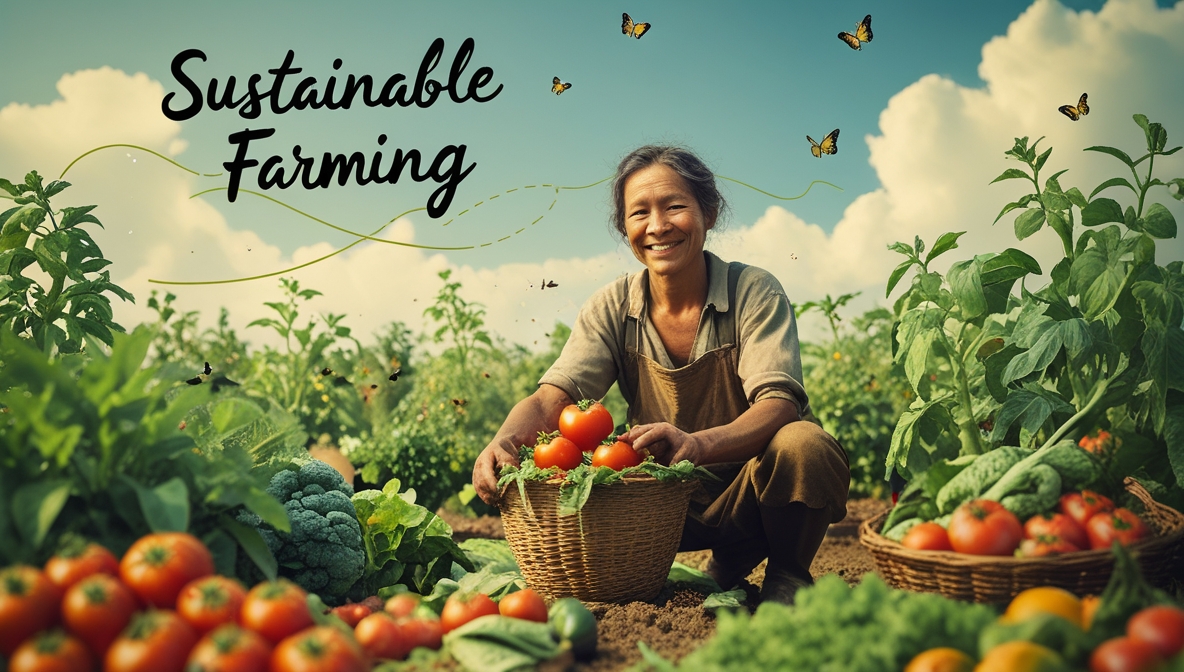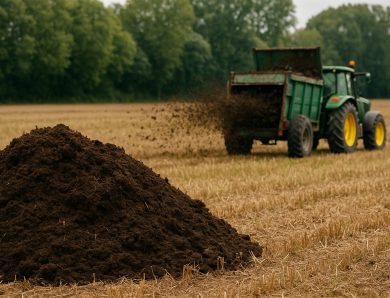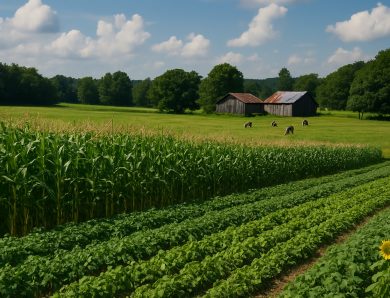
What is Sustainable Farming (and Why Should You Care)
Sustainable farming refers to agricultural practices that maintain productivity while safeguarding natural resources, supporting biodiversity, and promoting long-term economic stability. It answers the need for food production without sacrificing the planet’s health. Sustainable farming works by reducing harmful inputs, conserving water and soil, and encouraging natural cycles to secure a resilient food supply.
Understanding Sustainable Farming
Sustainable farming focuses on a balanced approach to agriculture. It employs methods that optimize productivity and minimize environmental impact. Techniques such as crop rotation, reduced chemical use, and integrated pest management create a farming system that is respectful to nature. This form of farming prioritizes soil fertility, water conservation, and reduced energy consumption. Each step aims to create a stable ecosystem capable of producing healthy food over generations.
Sustainable farms benefit not only nature but also farmers and local communities. By using resources wisely, farmers cut costs and reduce dependency on external inputs. This system supports smaller operations and often provides higher quality produce. As a result, consumers can enjoy food that is fresh, nutritious, and produced responsibly.
Key Practices in Sustainable Farming
Sustainable farming uses several practical techniques. Consider these effective practices:
- Crop Rotation: Alternating different crops over seasons keeps soil fertile and interrupts pest life cycles.
- Organic Fertilizers: Utilizing compost and natural manure enriches soil without synthetic chemicals.
- Water Conservation: Implementing efficient irrigation systems reduces waste and supports water availability.
- Agroforestry: Integrating trees with crops creates natural windbreaks and improves soil structure.
- Integrated Pest Management (IPM): Relying on biological controls and careful monitoring reduces the need for chemical pesticides.
Each practice contributes to a holistic system that benefits farmers, consumers, and the natural environment.
Benefits of Sustainable Farming
Sustainable farming offers various advantages that extend beyond food production. These include:
- Soil Health: Practices like crop rotation and organic amendments boost soil structure and fertility, leading to healthier crops.
- Water Quality: Reduced reliance on chemicals results in lower runoff into water bodies, preserving aquatic life.
- Biodiversity: Diverse crop systems and reduced chemical use foster a thriving ecosystem with a range of species.
- Economic Resilience: Reduced dependency on costly synthetic inputs lowers financial risks for farmers.
- Community Well-being: Local food production supports community health by offering fresh produce and creating job opportunities.
These benefits illustrate why many consumers and communities show growing interest in sustainable farming.
Impact on Local Communities
Sustainable farming plays a significant role in community development. Farms practicing sustainability often serve as educational centers, sharing techniques that improve resource management. These operations tend to collaborate with local businesses and farmers’ markets, supporting a circular economy. Local economies benefit from reduced transportation costs and a stronger connection between producers and consumers.
Communities enjoy better access to fresh produce, contributing to improved nutrition and health. Farmers working within sustainable frameworks often engage in fair trade practices, ensuring equitable income distribution and a stable rural economy. This approach strengthens social ties and fosters environmental stewardship among community members.
Practical Tips for Consumers
Consumers can support sustainable farming through daily choices. Consider these tips:
- Buy Local: Purchase from local farmers’ markets to support regional food production.
- Choose Organic: Select products grown without synthetic chemicals to encourage safer agricultural practices.
- Stay Informed: Research farms and producers that prioritize sustainable methods.
- Advocate: Share information about sustainable farming with friends and family to raise awareness.
- Reduce Waste: Plan meals and store food properly to minimize waste and reduce demand on food production.
These actions contribute to a broader shift toward environmentally responsible agriculture.
Sustainable farming offers a pathway to balance productivity with environmental health. It empowers communities, supports farmers, and creates a stable foundation for future food security. By choosing to support sustainable practices, consumers help shape an agricultural system that nurtures both people and the planet.




No Comment